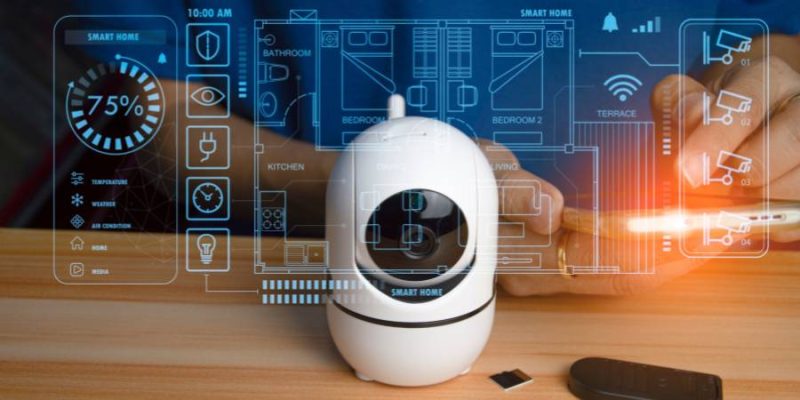
Is Your Smart Home Spying on You?
Imagine coming home after a long day. Your lights turn on as you enter, the thermostat adjusts to your preferred temperature, and your favorite playlist starts playing—all without you lifting a finger. Sounds like a dream, right? Welcome to the world of smart homes, where AI-powered devices anticipate your needs, making life easier and more convenient than ever.
But here’s the twist: the same devices designed to serve you might also be spying on you. Yes, you read that right. The smart home you’ve come to love may be watching, listening, and recording more than you realize. And the consequences could be far more sinister than you ever imagined.
The Double-Edged Sword of Smart Convenience
We’ve all marveled at the convenience of saying, “Hey Alexa, turn on the lights,” or asking Google Assistant for the weather while brewing our morning coffee. These smart devices are, in many ways, modern marvels—blurring the lines between science fiction and reality. But there’s a hidden cost to this convenience: your privacy.
Every time you interact with your smart home devices, you’re feeding them data—data about your routines, your preferences, your habits. And here’s the kicker: that data doesn’t just stay in your living room. It’s sent to the cloud, where it’s analyzed, stored, and—potentially—shared.
Who’s Listening When You’re Not Talking?
Let’s talk about voice assistants. Alexa, Siri, and Google Assistant are always on, waiting for your command. But to do that, they have to be listening—constantly. While companies assure us that they only start recording after the “wake word” is spoken, there have been numerous reports of accidental activations, where these devices have recorded conversations that were never meant to be heard.
Even more unsettling? Some companies employ human reviewers to listen to these recordings to improve their AI’s accuracy. That’s right—real people could be listening to snippets of your private conversations, all in the name of “service improvement.”
The Data Goldmine: Who’s Profiting from Your Information?
But it doesn’t stop with just eavesdropping. The data collected by your smart home devices is a goldmine for tech companies. They use it to build detailed profiles about you—what you like, what you do, where you go. This data is invaluable for targeted advertising, where companies can serve you ads so eerily accurate, they feel like they’re reading your mind.
And it gets worse. This data could potentially be sold to third parties, including insurance companies, financial institutions, or even governments. Imagine being denied insurance because your smart home data suggests you’re too risky, or being targeted by law enforcement based on your smart device activity.
Cybersecurity: The Open Door You Didn’t Know You Left Open
We’ve all heard horror stories about hackers taking control of smart home devices—spying through cameras, unlocking doors, or even manipulating thermostats. While these incidents are rare, they highlight a glaring vulnerability. Your smart home devices are connected to the internet, and anything connected to the internet is, in theory, hackable.
Without strong cybersecurity measures, your smart home could be an open door for cybercriminals, giving them access not just to your data, but to your home.
How to Protect Yourself in a Connected World
Feeling a bit paranoid? You’re not alone. But don’t throw out your smart devices just yet. There are ways to protect your privacy while still enjoying the convenience of a smart home:
- Read the Fine Print: Understand what data your devices are collecting and where it’s going. Opt out of data sharing whenever possible.
- Use Strong Passwords: Ensure that your Wi-Fi network and all connected devices are protected by strong, unique passwords. Enable two-factor authentication if available.
- Regular Updates: Keep your devices and apps updated to protect against the latest security vulnerabilities.
- Mute When Not in Use: Consider turning off or muting voice assistants when you don’t need them, or limit their access to certain rooms.
- Invest in a Firewall: A good firewall can provide an extra layer of protection against potential hackers.
The Trade-Off: Convenience vs. Privacy
The reality is, living in a smart home means balancing convenience with privacy. It’s about being aware of the trade-offs and making informed choices. As we invite more AI-powered devices into our homes, we must also become more vigilant guardians of our privacy.
So, is your smart home spying on you? The answer isn’t black and white. But one thing is clear: in the quest for a more connected, convenient life, we must not lose sight of the value of our personal privacy. Because once it’s gone, it’s nearly impossible to get back.
The next time you ask Alexa to play your favorite song, remember—your smart home is listening. And it might just be taking notes.





















